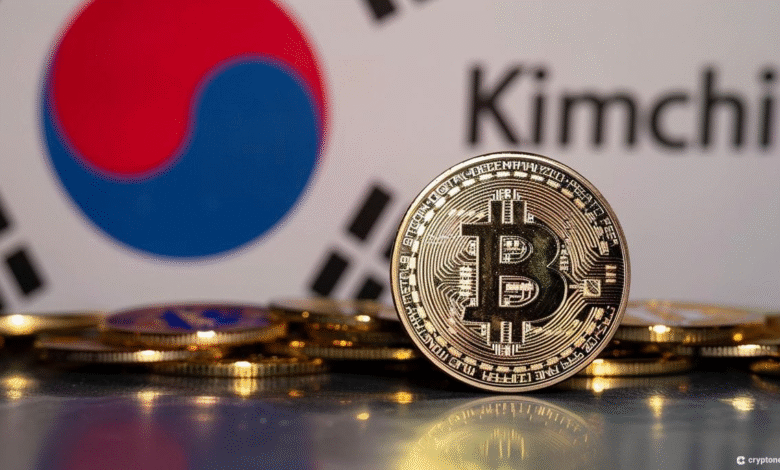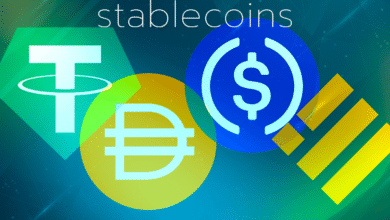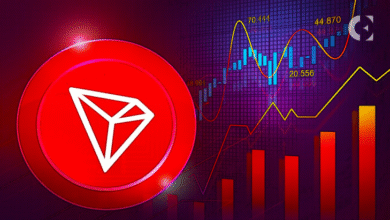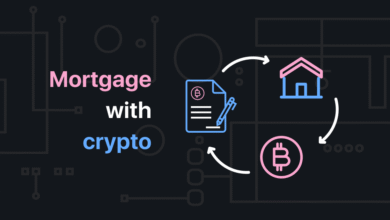Bitcoin Premium South Korea: Prices Surging Beyond Averages

Bitcoin premium South Korea has become a critical topic among crypto investors and analysts alike, as the price of Bitcoin trades significantly higher domestically. Over the past few weeks, this premium has surged, consistently marking over a 3% disparity relative to global averages—currently, it’s priced approximately $1,500 above the worldwide rate. Such phenomena often correlate with South Korea’s unique market characteristics, including stringent regulations and a fervent retail trading culture. Consequently, other cryptocurrencies like Ethereum are also experiencing similar trends, evidenced by recent price differences captured by data on crypto prices South Korea. The so-called “kimchi premium” has emerged, reflecting ongoing demand and the distinctive financial landscape in South Korea, making it essential to monitor these fluctuations in the market.
The South Korean cryptocurrency market is renowned for its notable pricing discrepancies, particularly for assets like Bitcoin, Ethereum, and Solana. Terms like “kimchi premium” describe the phenomenon where local prices exceed global ones due to restrictive financial regulations and heightened consumer demand. As investors observe the fluctuations in crypto prices in South Korea, many are drawn to understand how these dynamics influence trade and investment strategies. This ongoing price elevation informs traders about the unique behavior of digital currencies within the region. The disparity not only showcases local market trends but also presents opportunities for traders navigating between domestic and international platforms.
Understanding the Bitcoin Premium in South Korea
The phenomenon of the Bitcoin premium in South Korea has garnered significant attention from both investors and analysts alike. Currently, Bitcoin is trading at a notable premium, around 1.43% higher than the global average. This price difference is a result of unique market dynamics in the region. Factors such as high demand from local investors, stringent financial regulations, and limited supply on domestic exchanges contribute to this upward price pressure. As more traders flock to buy Bitcoin, the scarcity in the local market drives the prices higher relative to other countries.
The premium has seen fluctuations; for instance, it peaked at an impressive 3.09% on May 30, 2025. This discrepancy illustrates how South Korea’s local market can deviate from global trends. A critical aspect of this pattern is the ‘kimchi premium,’ which refers to the consistent price surge of cryptocurrencies like Bitcoin and Ethereum in South Korea compared to world prices. Understanding this phenomenon not only gives insight into South Korea’s crypto landscape but also reveals the broader implications for global Bitcoin valuations.
Crypto Prices South Korea: A Closer Look
In South Korea, crypto prices reflect a unique blend of local demand and regulatory influence. Besides Bitcoin, Ethereum is currently trading at approximately 1.71% above its global average. This pricing trend suggests a robust interest in altcoins, indicating that South Korean traders are not just focused on Bitcoin but are also seeking growth in other cryptocurrencies. Such demand can lead to increased volatility, as prices can shift rapidly in response to market trends and news.
Moreover, currencies like XRP are experiencing similar upward trends, with South Korean prices sitting at $2.31 compared to $2.27 globally, marking a 1.76% premium. These premiums across major cryptocurrencies underscore the importance of local market conditions, investor sentiment, and the regulatory environment in driving the South Korean crypto marketplace. Analyzing these trends provides valuable insights for investors looking to navigate the complexities of crypto trading in South Korea.
The Impact of Kimchi Premium on Market Behavior
The term ‘kimchi premium’ encapsulates the rising price of cryptocurrencies in South Korea, reflecting a broader market phenomenon that influences trading dynamics. This premium indicates that South Korean exchanges often list higher prices compared to their counterparts globally, creating profitable opportunities for savvy traders. As local demand for cryptocurrencies grows, this premium signals potential bullish trends that can attract both individual and institutional investors looking to capitalize on price differentials.
However, the effects of the kimchi premium are not linear. Sudden market shifts or regulatory changes can alter the premium significantly. For example, when global prices of Bitcoin drop, the local premium may narrow or even turn into a discount, as seen in past fluctuations of the market. Understanding these nuances helps investors create strategies based on regional trends and the broader market environment.
Ethereum Prices in South Korea: Trends and Analysis
Ethereum has been gaining traction alongside Bitcoin in the South Korean market, and it’s currently priced at a notable premium over its global counterparts. The local rate of Ethereum is around 1.71% higher, signifying strong demand among traders. This increase can partly be attributed to the growing interest in decentralized finance (DeFi) and non-fungible tokens (NFTs), both of which leverage Ethereum’s robust network capabilities.
As various DeFi projects continue to gain popularity, Ethereum’s price is expected to reflect such enthusiasm. Market observers must keep an eye on developments within the Ethereum ecosystem and surrounding regulations in South Korea, as they can significantly impact its pricing landscape. Understanding this dynamic allows investors to better navigate the opportunities and risks inherent in the South Korean crypto market.
XRP Premium in South Korea: Opportunities and Challenges
XRP, much like Bitcoin and Ethereum, is exhibiting a premium in South Korea, currently marking a 1.76% higher price than on global exchanges. This premium showcases strong local interest in XRP, which remains a popular choice for investors seeking exposure to blockchain technology and fast payment solutions. The XRP price disparity presents both opportunities and challenges for traders operating within this dynamic market.
However, it’s essential to note that fluctuations in the XRP premium can be influenced by various factors, including market sentiment and regulatory news that affects Ripple’s operations. As traders in South Korea react to local and international developments, staying informed about these influences can help them make more effective trading decisions. This premium highlights not only XRP’s potential for price appreciation but also the broader implications of regulatory scrutiny in the crypto space.
Solana: Emerging Trends in South Korean Crypto Market
Solana’s presence in the South Korean crypto market has been gaining traction, with its prices showing a 1.49% premium over global trading averages. This rise can be attributed to the increasing popularity of Solana as a fast and efficient blockchain platform that supports various projects. As more South Korean traders recognize the value of Solana in the developing DeFi ecosystem, the demand has subsequently driven prices higher on local exchanges.
The substantial interest in Solana indicates a diversified trading approach among South Korean investors. It reinforces the notion that while Bitcoin continues to dominate, altcoins like Solana are carving out significant niches within the market. This trend suggests that local investors are becoming more adventurous, exploring a range of cryptocurrencies that show potential for high returns.
The Role of Regulatory Framework in Crypto Pricing
The South Korean regulatory framework plays a pivotal role in shaping the pricing landscape for cryptocurrencies. Specific regulations and guidelines influence how exchanges operate, which, in turn, affects the supply of Bitcoin and other cryptocurrencies. For instance, strict capital controls limit foreign investments, contributing to the price premiums observed among various cryptocurrencies, including Bitcoin, Ethereum, and Solana.
Understanding the effects of such regulations is crucial for investors. Any potential changes in the legal landscape can significantly impact the trading behavior and the associated premiums. Being proactive in monitoring regulatory updates can provide traders with valuable insights to navigate their investment strategies effectively in the ever-evolving South Korean crypto market.
Market Volatility: What It Means for Investors
Market volatility remains a constant in the world of cryptocurrency trading, and South Korea is no exception. The premiums observed among various cryptocurrencies often reflect broader market fluctuations where prices can rise sharply or decline just as quickly. Investors must be prepared for these sudden changes, as the dynamics of supply and demand can shift dramatically due to various factors, including international news, regulatory announcements, and market sentiment.
This volatility can create both opportunities and risks; however, it can lead to lucrative trading situations for those who remain vigilant. Investors in South Korea are encouraged to employ risk management strategies and to closely monitor real-time data to capitalize on price movements among cryptocurrencies like Bitcoin and Ethereum.
Future Trends in Cryptocurrency: South Korea’s Influence
The South Korean crypto market is poised to influence future trends in the digital asset landscape significantly. As local demand continues to rise, particularly for Bitcoin and altcoins, the South Korean exchanges are set to play a crucial role in global pricing benchmarks. Observers have noted that the price discrepancies arising from the premium trends may increasingly reflect South Korea’s unique economic environment and its appetite for cryptocurrency investments.
Additionally, the ongoing evolution of blockchain technology and novel financial products may further innovate the South Korean market. Investors should be prepared to adapt to these changes, as they could shape trading behaviors and expectations moving forward. Understanding how South Korea’s crypto landscape develops will provide investors with a critical edge in a rapidly changing financial ecosystem.
Frequently Asked Questions
What is the current Bitcoin premium in South Korea?
As of the latest data, Bitcoin is trading at a 1.43% premium in South Korea, which translates to a price of approximately $107,412 compared to the global average of $105,896. This premium reflects the ongoing differences in crypto prices in South Korea.
Why does South Korea experience a kimchi premium on Bitcoin?
The kimchi premium refers to the price discrepancy of Bitcoin and other cryptocurrencies in South Korea, often due to strict capital controls and financial regulations that limit cross-border transactions. This restriction reduces the Bitcoin supply available on local exchanges, leading to elevated prices.
How does the Bitcoin to Solana price comparison work in South Korea?
Currently, Solana is also experiencing a premium in South Korea, trading at 1.49% above its global price. This trend reflects a broader phenomenon where Bitcoin and other cryptocurrencies are priced higher in South Korea, indicating strong local demand.
What factors contribute to the fluctuation of crypto prices in South Korea?
Factors contributing to the fluctuation of crypto prices in South Korea include strict regulations, supply constraints due to limited cross-border fund flows, and unique market dynamics driven by local trader demand, which creates premiums for Bitcoin and other cryptocurrencies.
How does the Ethereum price in South Korea compare to global rates?
Ethereum is currently trading at a 1.71% premium in South Korea, which indicates that it is valued higher than global averages. This pattern of pricing suggests that the local market conditions significantly impact Ethereum’s value and other crypto assets.
Is XRP also experiencing a premium in South Korea?
Yes, XRP is showing a premium in South Korea as well. It is priced at $2.31 compared to $2.27 globally, reflecting a 1.76% difference, similar to the trends observed with Bitcoin and Ethereum.
What does the 3% Bitcoin premium in South Korea signify for traders?
The 3% Bitcoin premium signifies increased demand among South Korean traders and highlights the unique market conditions that differentiate local trading environments from global standards. It is a key indicator for traders to understand regional market dynamics.
How do crypto prices in South Korea affect international trading strategies?
The premium pricing of Bitcoin and other cryptocurrencies in South Korea can influence international trading strategies. Traders may consider these premiums when deciding to enter or exit positions based on price disparities across different markets.
Are price premiums common for all cryptocurrencies in South Korea?
Yes, price premiums are not limited to Bitcoin alone; Ethereum, XRP, and Solana are also trading at higher prices in South Korea compared to global averages. This trend underscores the robust interest in cryptocurrencies in the South Korean market.
What role do capital controls play in Bitcoin pricing in South Korea?
Capital controls play a significant role in Bitcoin pricing in South Korea by restricting the flow of funds outside the country. This limitation reduces the supply of Bitcoin on local exchanges, often resulting in higher prices, commonly referred to as the kimchi premium.
| Crypto Asset | Global Average Price (USD) | South Korea Price (USD) | Premium/Discount (%) |
|---|---|---|---|
| Bitcoin (BTC) | $105,896 | $107,412 | +1.43% |
| Ethereum (ETH) | N/A | N/A | +1.71% |
| XRP | $2.27 | $2.31 | +1.76% |
| Solana (SOL) | N/A | N/A | +1.49% |
Summary
Bitcoin premium South Korea is a notable trend where the price of Bitcoin remains significantly higher than the global average. In recent weeks, the divergence has grown, reflecting a robust local demand influenced by stringent market regulations. As of early June, Bitcoin was trading at a striking $1,500 premium compared to global prices, which underscores the unique economic environment in South Korea for cryptocurrencies. With other major cryptocurrencies like Ethereum and XRP also showing premium rates, it is clear that the South Korean market dynamics play a significant role in shaping pricing trends for digital currencies.




